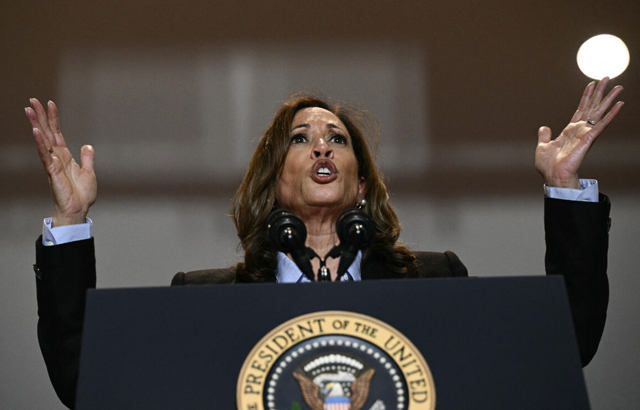Harris Unveils Bold Economic Plans Amid Fierce Political Debate
As the U.S. heads towards a critical presidential debate, Kamala Harris unveils ambitious policies to bolster small businesses, setting the stage for a high-stakes face-off with Donald Trump.
Published September 05, 2024 - 00:09am

Image recovered from bssnews.net
WASHINGTON, Sept 4, 2024 – In a pivotal moment of her campaign, Vice President Kamala Harris unveiled comprehensive economic policies aimed at boosting small businesses across the United States. This announcement comes as Harris prepares for a critical debate against former President Donald Trump, marking a significant intensification in the economic rhetoric from both candidates.
Harris, who replaced President Joe Biden as the Democratic candidate, presented her plan to offer a tax deduction of up to $50,000 for small business startup costs, a tenfold increase from the current allowance. Speaking in Portsmouth, New Hampshire, Harris emphasized the need to reduce the bureaucratic hurdles and provide tax breaks to help small businesses thrive.
A Harris campaign official stated that this move is part of her broader economic policy designed to create an 'opportunity economy.' The official noted, 'Harris will propose a dramatic tenfold expansion of tax relief for starting a small business and set a goal of 25 million new small business applications in her first term.' With her speech scheduled just hours before Trump's town hall in Pennsylvania, the announcement is seen as a strategic maneuver to solidify her economic stance.
Additionally, Harris plans to address the rising costs of living, pledging to make housing, groceries, prescription drugs, child care, and healthcare more affordable. Her campaign pitches include a federal ban on price gouging in the food industry, a proposal that has already stirred controversy among businesses and economists alike.
As Harris takes the stage, Trump has aggressively attacked her economic record, positioning himself as the pro-business candidate. Trump's economic policies, particularly his push to make previous tax cuts permanent and lower corporate tax rates, contrast sharply with Harris's approach of increasing taxes on corporations and affluent households.
Despite the critical nature of New Hampshire in the general election, Trump critics claim that the state's issues, such as high living costs and energy bills, are more complicated than campaign promises suggest. Trump stated via his social media platform, Truth Social, 'Comrade Kamala Harris sees there are problems for her campaign in New Hampshire because of the fact that they disrespected it in their primary and never showed up.' This comment reflects ongoing tensions between the two candidates as they vie for voter approval.
Harris's campaign promises to collect 25 million new small business applications by the end of her first term signify her commitment to fostering entrepreneurial growth. While Trump's tax policies aim to benefit large corporations, Harris's proposals target the backbone of the American economy – small businesses and the middle class.
Furthermore, Harris has proposed to offer low- and no-interest loans and expand access to venture capital for small businesses. Her advocacy for a minimum tax on billionaires aims to address the growing income disparity, a move that aligns with her broader economic vision.
In contrast, Trump continues to appeal to big businesses by advocating for a 15% corporate tax rate and permanent tax cuts that he enacted during his first term. His economic vision sees large corporations as central to the nation's economic health, a perspective that Harris's campaign criticizes.
Harris's approach is particularly relevant as polls indicate a shift in voter preferences. A recent USA Today/Suffolk University poll shows Harris leading Trump by a margin of 48% to 43%, reflecting an eight-point swing since Biden's departure from the race. This shift is significant among critical demographics including Hispanic and Black voters and younger generations.
The forthcoming debate in Philadelphia is set to be a crucial moment for both candidates. Harris's preparation, including her multiple visits to Pittsburgh, underscores her commitment to solidifying her economic policies before the debate. Analysts predict that the debate will heavily influence voter perceptions of each candidate's economic vision.
In summary, Kamala Harris's latest economic proposals are a clear indication of her commitment to revitalizing small businesses and addressing income inequality. Her policy contrasts starkly with Donald Trump's pro-corporate stance, setting the stage for an intense electoral battle as the debate looms. The forthcoming weeks will be critical in determining which candidate's economic vision will resonate more with the American electorate.






